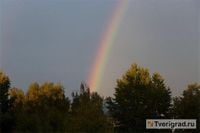On May 8, 2025, the folk calendar celebrates Mark Klyuchnik, a day dedicated to the memory of the Apostle Mark, revered in Russia as the protector of springs and key water. This day is significant as it marks the establishment of spring warmth and is filled with rich traditions and rituals that connect the past with the present.
The Apostle Mark, one of the seventy disciples of Christ, is remembered for founding the Alexandrian Church and authoring the Gospel of Mark. In folk tradition, he is known as Klyuchnik, believed to hold the keys to heaven and control the rain. On this day, Orthodox Christians commemorate him with prayers, seeking his intercession for rain, which is crucial for the upcoming harvest.
Mark Klyuchnik's day is steeped in customs that reflect a deep connection to nature and the cycles of the seasons. It was customary for people to visit springs and relatives to gather healing water, believed to possess special powers. This water was used for health, to water the sick, and to sprinkle homes and outbuildings for protection against evil forces. Christians would clean old wells and consecrate new ones while praying for rain to ensure a bountiful harvest.
On this day, housewives baked special round loaves of bread symbolizing the sun, with some of the bread thrown into the nearest spring as a gift to the water. Livestock were also blessed, as shepherds would walk around their herds with a bucket of key water, sprinkling it on the animals for protection.
Numerous omens and signs were associated with Mark Klyuchnik's day, predicting the weather and the fate of the harvest. For instance, if swallows arrived by this day, it was believed that summer would be warm and fruitful. Rain on May 8 was considered a good omen for a successful grain harvest, while the blooming of bird cherry indicated that warmer weather was imminent. Conversely, a foggy morning was seen as a sign of a rainy summer.
People engaged in various activities on this day, such as collecting water from springs, cleaning and consecrating wells, and performing rituals to attract rain. Baking ritual pastries to share with those in need was also a common practice. However, there were strict prohibitions as well. It was considered improper to take water from springs without thanking them, to quarrel at the water, or to leave wells uncleaned. Starting important tasks without prayer was also discouraged.
May 8 also holds a dual significance as it coincides with the Day of Remembrance and Reconciliation, dedicated to the victims of the Great Patriotic War. This day serves as a poignant reminder of the past, urging peace and understanding among people.
The weather on May 8 was crucial for determining the fate of the upcoming harvest. Observations made by ancestors were taken seriously; for instance, if the water in lakes and rivers was muddy, it foretold a rainy and cool summer. Clear water, on the other hand, promised sunny days ahead. The morning dew on grass was another indicator; dry leaves suggested a drought in June, while abundant dew predicted frequent summer rains.
Animals also played a role in weather predictions. Loud croaking from frogs in the evening signaled warm nights and sunny mornings, while silent frogs warned of colder weather. Cows lying down with their legs tucked under them indicated impending rain, while restless cows looking up at the sky suggested a thunderstorm was near. Hedgehogs spotted during the day were seen as harbingers of damp weather.
In addition to animals, plants provided insight into the coming weather. Clover leaves folding vertically before dawn indicated a windy day, while oak trees could forecast the summer's dryness or wetness based on the timing of their buds opening compared to birch trees. Coniferous trees served as natural hygrometers, with closed cones predicting rain and open ones indicating dry weather.
The sky offered its own signs, with a rainbow appearing in the west after rain foreshadowing another clear day, while one in the east promised good weather. Fog dissipating before noon suggested a sunny day, whereas lingering fog signaled prolonged dampness. Frost on stones in the morning reminded people that late frosts were still a possibility.
As the day progressed, the moon and stars also provided clues. A bright halo around the moon indicated strong winds in the coming days. The absence of dew under a waning moon was seen as a sign of dry conditions for the next two weeks.
In many ways, May 8 serves as a reminder of the importance of observing nature and its rhythms. The omens and customs associated with Mark Klyuchnik's day encourage people to engage with their environment, fostering a connection that transcends time. Even in an era of advanced weather forecasting, the wisdom of folk traditions continues to resonate, reminding us to remain attuned to the world around us.
As we reflect on the significance of May 8, it becomes clear that this day is not just about agricultural practices or weather predictions; it is a celebration of life, community, and the enduring bond between humanity and nature. The traditions surrounding Mark Klyuchnik invite us to honor the past while looking forward to the future, emphasizing the importance of gratitude, respect, and harmony with the natural world.


